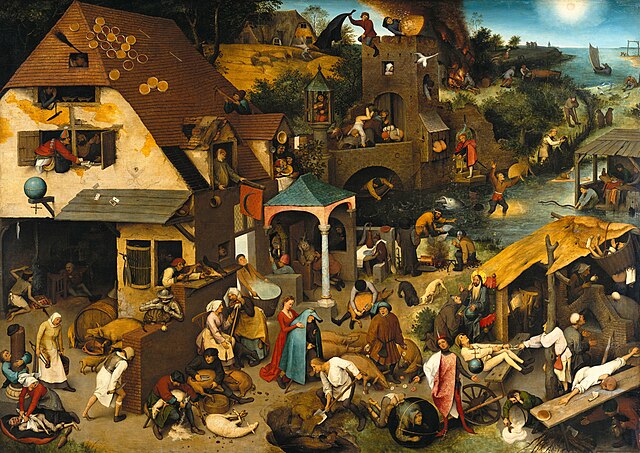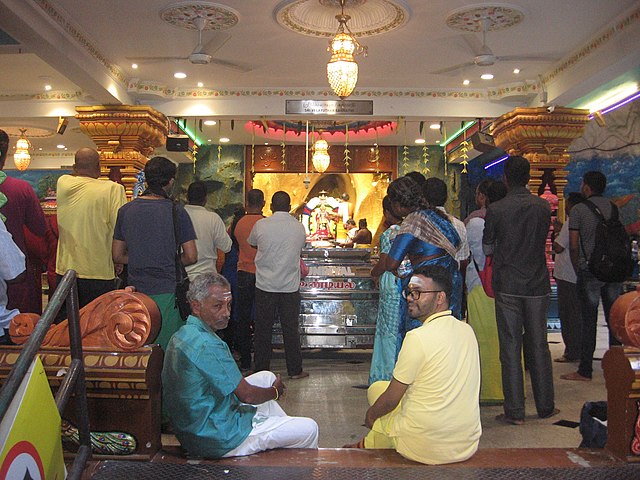Myth is a genre of folklore or theology consisting primarily of narratives that play a fundamental role in a society, such as foundational tales or origin myths. For scholars, this is very different from the vernacular usage of the term "myth" that simply refers to something that is not true. Instead, the truth value of a myth is not a defining criterion.
Odysseus Overcome by Demodocus' Song, by Francesco Hayez, 1813–1815
Ballads of bravery (1877) part of Arthurian mythology
Opening lines of one of the Mabinogi myths from the Red Book of Hergest (written pre-13c, incorporating pre-Roman myths of Celtic gods): Gereint vab Erbin. Arthur a deuodes dala llys yg Caerllion ar Wysc... (Geraint the son of Erbin. Arthur was accustomed to hold his Court at Caerlleon upon Usk...)
Myths and legends of Babylonia and Assyria (1916)
Folklore is the body of expressive culture shared by a particular group of people, culture or subculture. This includes oral traditions such as tales, myths, legends, proverbs, poems, jokes, and other oral traditions. This also includes material culture, such as traditional building styles common to the group. Folklore also encompasses customary lore, taking actions for folk beliefs, and the forms and rituals of celebrations such as Christmas, weddings, folk dances, and initiation rites.
Netherlandish Proverbs by Pieter Bruegel the Elder, 1559
A European folk tale, Little Red Riding Hood; illustration by Jessie Willcox Smith, 1911
A German folk tale, Hansel and Gretel; illustration by Arthur Rackham, 1909
Indian Folk Worship at Batu Caves, Selangor Malaysia








